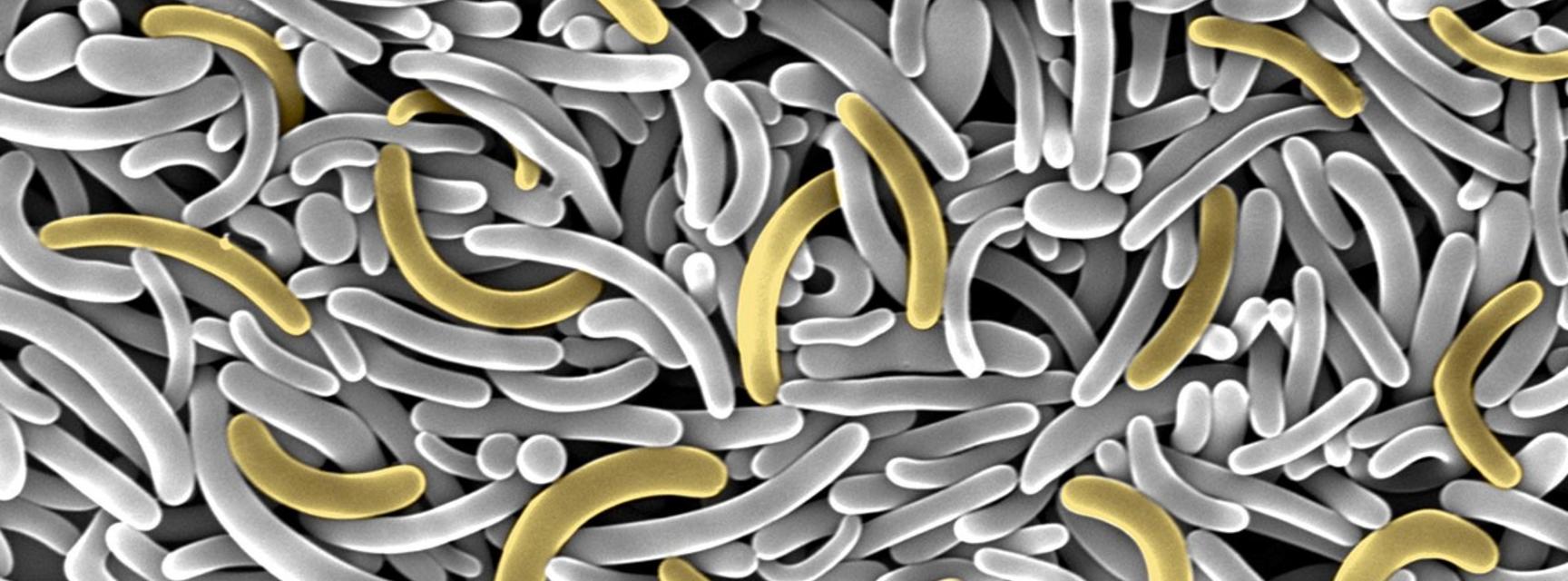Advanced Functional Materials and Interfaces
Advanced functional materials and interfaces is a naturally interdisciplinary field with chemistry playing a central role. The discovery, understanding and development of these materials is central to providing solutions in areas ranging from energy, healthcare, electronics, and catalysis.
Oxford Chemistry has a broad range of interests across the fields of materials and interfaces. Amongst these are materials exhibiting interesting optical, electronic, magnetic, catalytic and mechanical properties. Our expertise spans the discovery, understanding and development of theory for materials providing solutions in energy, healthcare, electronics, engineering and catalysis. Much of the research is naturally interdisciplinary and collaborative.

Magnetic and electronic materials
We are experts in the synthesis and characterisation of a wide range of inorganic and inorganic-organic hybrid solids, and in the control of their electronic and magnetic properties using compositional tuning and guided by input from computation. We place a strong emphasis on understanding the relationship between composition, crystal structure and physical properties. The compounds of interest include high-temperature superconductors, ferromagnets, multiferroics, thermoelectrics and energy-storage materials. We exploit strong synergies with Oxford Physics, Oxford Materials and with the Diamond Light Source and the ISIS pulsed neutron facility.
Nanomaterials
Our research includes very well-controlled syntheses enabling the preparation of a range of well-defined nanoparticles and 2-D nanosheets. Applications for these nanomaterials include as catalysts, electroactive materials, electronics, magnetic materials and medicine/theranostics/imaging. We also investigate nanotoxicology and implications of nanotechnology in applications.
Polymers
Our interests include investigation of a very wide range of polymerization chemistries and catalyses to make new and known polymers. For example, we have on-going research into the improved preparation of biodegradable polymers, polyolefins, conjugated polymers, polyacrylates and styrenics. We are focussed on the improved and more sustainable synthesis of existing polymers as well as the discovery and optimization of properties of completely new materials. The characterization of polymers includes the whole range of spectroscopy, thermal and mechanical qualification. We design and engineer polymeric coatings on nanoparticles and solid surfaces that additionally generate responsive polymeric nanoparticles for theranostic applications.
Colloids
We are experts in the design, fabrication and functionalisation of colloidal particles. These are used to study and control the visco-elastic response of complex fluids, also for industrial applications. They also play a key role in elucidating questions dealing with a range of physically motivated problems ranging from wetting phenomena, flow instabilities, grain boundaries, phase behaviour, glass transition, etc.
Controlled surface modifications
We have world-leading expertise in the design and fabrication of novel complex fluids, where we combine polymer and inorganic chemistry to synthesize particles with for example, tailored optical and surface properties.
Soft condensed matter
We address key questions about the properties and behaviour of complex fluids, in confinement, under flow and from a biophysical perspective by combining experiments, simulations and theory.
Advanced interfacial measurements
We measure fundamental properties of fluid interfaces by using advanced microscopy and scattering techniques. We routinely generate a broad range of responsive or respond to specific targets of environmental or clinical importance. These are characterised by a broad range of state-of-the-art analytical methods (near and far field).
Advanced diffraction techniques and computational structural solutions
We focus on developing and utilizing diffraction techniques to probe structure in both solid state and soft condensed matter systems. We investigate both the characterization and prediction of new and known solid state inorganic and organic-inorganic structures, we also investigate the self-assembly of colloidal systems and of biological systems through a range of simulation techniques.
Ionic liquids
We have strong expertise in ionic liquids and highly concentrated electrolytes. We use a range of high-resolution techniques to measure their physical properties with the aim of understanding the structural, electrostatic, dynamic/electrokinetic and electrochemical properties of these liquid electrolytes.





